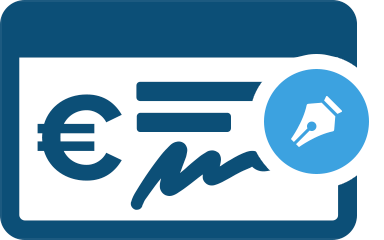


Seguir leyendoMostrar menos
In the heart of Burgundy, the Musée des Beaux-Arts in Dijon is one of the oldest in France, dating back to the Ancien Régime. Thanks to the legacy of the Dukes of Burgundy, the museum boasts some of the finest masterpieces of the late Middle Ages. Its encyclopaedic collections, which stem from both the founding period of the Revolution and the curiosity of collectors, invite visitors to discover a wide range of works, from Egyptian art to the 21st century. The museum is housed in the former Hôtel des Ducs de Bourgogne and the eastern part of the Palais des Etats. As such, it is an essential testimony to the art and history of Burgundy from the end of the Middle Ages to the end of the 19th century.
Despite the classical regularity imposed at the end of the 17th century, the diversity of the palace's buildings, erected from the 14th to the 19th century, bears witness to the building's centuries-long history: residence of the Dukes of Burgundy, then home of the kings and governors, seat of the States, drawing school at the origin of the museum, and finally Dijon town hall.
Dijon's Musée des Beaux-Arts symbolises the city's roots, with works representing the region's artistic creativity, but also its openness to the world, with collections representing five continents. With the renovation of the museum, the 21st century is also taking its place in the palace, with architectural interventions that aptly assert its openness to contemporary life.
Important information:
- Admission is free
- It is forbidden to bring into the buildings objects that present a risk to the safety of people, works of art or buildings. (including pointed walking sticks).
- Animals are not allowed, with the exception of those used to accompany people with disabilities.
- Pushchairs are not permitted, except cane pushchairs. You can borrow one from the museum.
Despite the classical regularity imposed at the end of the 17th century, the diversity of the palace's buildings, erected from the 14th to the 19th century, bears witness to the building's centuries-long history: residence of the Dukes of Burgundy, then home of the kings and governors, seat of the States, drawing school at the origin of the museum, and finally Dijon town hall.
Dijon's Musée des Beaux-Arts symbolises the city's roots, with works representing the region's artistic creativity, but also its openness to the world, with collections representing five continents. With the renovation of the museum, the 21st century is also taking its place in the palace, with architectural interventions that aptly assert its openness to contemporary life.
Important information:
- Admission is free
- It is forbidden to bring into the buildings objects that present a risk to the safety of people, works of art or buildings. (including pointed walking sticks).
- Animals are not allowed, with the exception of those used to accompany people with disabilities.
- Pushchairs are not permitted, except cane pushchairs. You can borrow one from the museum.
In the heart of Burgundy, the Musée des Beaux-Arts in Dijon is one of the oldest in France, dating back to the Ancien Régime. Thanks to the legacy of the Dukes of Burgundy, the museum boasts some of the finest masterpieces of the late Middle Ages. Its encyclopaedic collections, which stem from both the founding period of the Revolution and the curiosity of collectors, invite visitors to discover a wide range of works, from Egyptian art to the 21st century. The museum is housed in the former...
Servicios
Servicios
Specific theme activities
Adult workshop
Junior workshop
Temporary exhibitions
Bar
Restaurant
Library
Shop
Oferta de prestaciones
Sellos empresariales
Sellos empresariales
 Musée de France
Musée de FranceFormas de pago
Formas de pago
Formas de pago
 Credit card
Credit card Cheques and postal orders
Cheques and postal orders Cash
CashCapacidad grupos
Capacidad grupos
- 30 Persona(s)
- 30 Persona (s) Max
Periodos de apertura
Periodos de apertura
Del 1 enero 2025 al 31 mayo 2025
Hasta el 31 mayo 2025
Lunes
09:30 - 18:00
Miércoles
09:30 - 18:00
Jueves
09:30 - 18:00
Viernes
09:30 - 18:00
Sábado
09:30 - 18:00
Domingo
09:30 - 18:00
Ubicación
Ubicación
Idiomas hablados
Idiomas hablados

